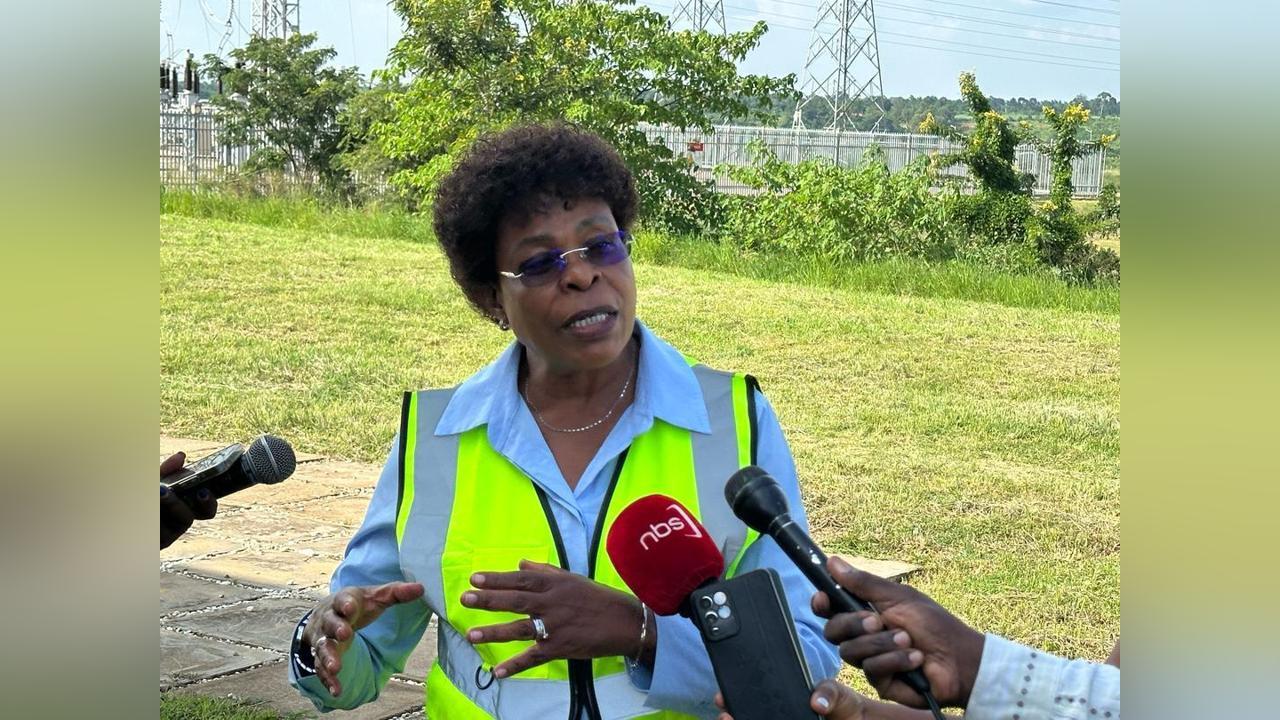Africa-Press – Uganda. The Inspectorate of Government (IGG) has launched an investigation into the Isimba Hydropower Plant following multiple petitions from Ugandans concerned about the plant’s structural integrity and overall construction quality.
Speaking after an on-site inspection on Friday, Inspector General of Government Beti Kamya said her office had received several complaints alleging serious defects in the civil, electrical, and mechanical works at the 183MW facility, located along the Nile River in Kayunga District.
“The Inspectorate of Government has received several petitions from concerned Ugandans of different walks of life, complaining about management civil issues regarding the Isimba Hydropower Plant,” Kamya stated. “Today was basically a fact-finding mission at the site.”
Kamya revealed that after initial meetings with key stakeholders including the Ministry of Energy, Uganda Electricity Generation Company Limited (UEGCL), and the Office of the Attorney General her team decided to carry out an independent inspection to crosscheck the allegations against the realities on the ground.
While cautioning that she is not a technical expert, Kamya disclosed that her preliminary observations indicated significant quality defects in the plant’s structures.
“With my naked eye, I observed serious quality issues. The structures look like they are 50 years old, yet this plant is only about five years old,” she said.
“There are visible cracks in the building, and peeling of materials on the sides signs that even a non-technical person can notice.”
However, she emphasised that a final judgment would only be made after a comprehensive technical evaluation by engineering experts.
“I will wait for engineers to give us a full report. We will internalize the information and evaluate further,” Kamya added.
The Inspectorate has pledged to produce a preliminary position on the matter within three weeks, following deeper investigations and stakeholder engagements.
During the inspection, Kamya noted a worrying lack of consensus between the project’s contractor and the implementing agency (UEGCL) regarding the nature and gravity of the problems identified.
“The contractor and the implementing agency seem to be far apart in appreciating the problem. That is a big problem in itself,” Kamya said.
“Normally, both sides should agree that a problem exists and work together towards a solution, but in this case, their assessments and proposed remedies diverge significantly.”
Kamya also revealed that President Museveni had intervened in the Simba Hydropower Plant’s issues two years ago, giving clear directives intended to resolve the concerns at the facility.
“His Excellency, the President intervened and gave directives, assuming they were being implemented. Unfortunately, they haven’t been fully acted upon,” she said.
She added that while various arms of government had taken steps within their mandates, the current investigation represents the IGG’s independent intervention to safeguard public interest.
When asked whether government officials could be held culpable for the problems, Kamya confirmed that her office’s jurisdiction covers any area where government resources, money, or interests are involved excluding only the Office of the President by law.
“Anybody found culpable will be held responsible,” Kamya stressed.
“The petitions are mainly about the quality of work, which points to the contractor. But during supervision, if someone within government slept on the job, that will also be addressed.”
The IGG expressed concern over the type of contract under which the Simba Plant was constructed an Engineering, Procurement, and Construction (EPC) contract which she said places excessive trust in the contractor’s competence and goodwill.
“EPC contracts assume that the contractor is fully competent, capable, and honest.But there are no in-between checkpoints or milestones under such contracts. This structure is too trusting and risky,”she said.
Kamya recommended that government agencies negotiating future EPC contracts include more rigorous oversight mechanisms to ensure quality delivery at every stage of the project.
“There needs to be step-by-step supervision built into such contracts. Assumptions of goodwill and capacity must be tested through continuous evaluation,” she said.
The final report, expected within three weeks, will determine the next course of action, including whether criminal, civil, or administrative proceedings should be initiated against responsible parties.
For More News And Analysis About Uganda Follow Africa-Press






